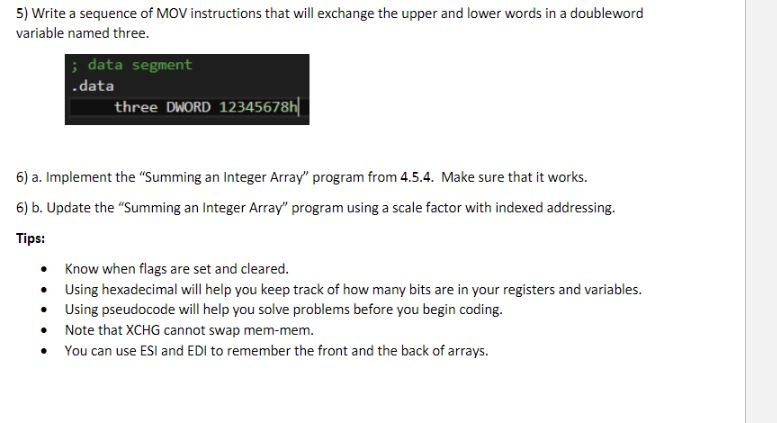Question
I just need some help creating this assembly program. 1) Create a definition of each data type listed below. Initialize each variable to a value
I just need some help creating this assembly program.
1) Create a definition of each data type listed below. Initialize each variable to a value that is consistent with its data type. Then move each variable into a register and step through your program to make sure that it works. Note: Make sure that your variable sizes match the register sizes. BYTE, SBYTE, WORD, SWORD, DWORD, SDWORD,REAL4 Variables are in memory. To see them, while paused in debug mode, add a Memory window to your view. You can type on addresses to find values. To find a variable by name, use & in front of it. (e.g. for a variable named bVar, use &bVar).
2) Declare an array of 60 uninitialized unsigned doubleword values. Create another array of 60 unsigned doublewords, initialized to abcd. Look at these arrays in the memory window and note how they are stored. (Intel architecture uses little - endian order).
3) Create a DWORD variable in which the hexadecimal data would be stored internally as 12345678 .
4) Define a symbol for your name as a null-terminated string.
Step by Step Solution
There are 3 Steps involved in it
Step: 1

Get Instant Access to Expert-Tailored Solutions
See step-by-step solutions with expert insights and AI powered tools for academic success
Step: 2

Step: 3

Ace Your Homework with AI
Get the answers you need in no time with our AI-driven, step-by-step assistance
Get Started


